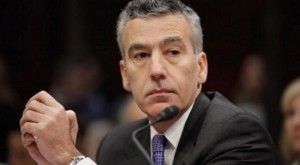US vows to ease tension over China’s air defense zone
MANILA, Philippines – The US government is now working towards reducing tension caused by China’s declaration of its own air defense identification zone (ADIZ), US ambassador to the Philippines Philip Goldberg said on Thursday.
“We think that we should be working very much to reduce tension and whether that’s in its South East Asia or in the West East Asia, that’s our goal,” Goldberg said at a press conference in the Senate when asked if the Philippines should be worried that China might also set up the same air defense zone over the contested South China Sea.
One of the problems the way the issue has been handled, Goldberg said, was the lack of consultation.
“It involves an ADIZ where when we implement it, we don’t ask for such identification from flights not entering into our US air space. But the fact that it was a unilateral decision and it’s something that could raise tension possibly involving miscalculations, which is something that we need to avoid,” he said.
“So we will make that clear both as a matter of principle and operationally and the Vice President I know has made that clear in his visit to Japan and to China.”
Article continues after this advertisement“So I think we need to work to reduce tensions, to make sure there aren’t miscalculations so we should not try or speculate about additional measures. Let’s reduce not increase (the tension),” said Goldberg, who paid a visit to Senate President Franklin Drilon.
Article continues after this advertisementIn his meeting with Drilon, the ambassador said they also discussed the issue of “increased rotation presence of US troops in the country,” saying it was “unavoidable” especially in the aftermath of Supertyphoon “Yolanda” that struck Eastern Visayas last November 8.
But Drilon, who joined Goldberg in the press conference, immediately clarified that the discussions on increased rotational presence would not lead to eventual permanent basing of the US troops.
‘There will be no permanent basing of American troops as a result of the increased rotational presence that we’re discussing now with the US,” he said.
“I have briefed the ambassador of the necessity of a treaty where it would involve permanent basing and discussions clearly indicate that there will be no permanent basing here.”
“And as emphasized by ambassador Goldberg, it will be beyond the military aspect of the relations. Many aspects, including humanitarian and relief readiness, would be enhanced by this agreement being discussed,” Drilon added.
Related stories
DFA: China envoy statement over air zone ‘hypothetical’
China defends air defense zone, hits back at critics
